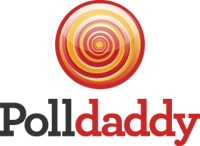Throughout this course we have been using digital technology, and encouraged to sign up for different online tools. These tools have contributed to my digital footprint in a positive. My instructions for this week were to Google myself and explain what I have found. I can tell you that a lot have changed over the past few months due this course. When I looked up my name I see some new profiles for different accounts. I see my sound cloud, Google plus, live binder, and twitter account. All of these did not show up previously to this course. I thought that this was very cool to see how much my digital footprint can grow. It was great to see that my blog post show up because they are everything I have learned about being a digital citizen.
|
|
| ThinkGlink (2015) [Online Image] Retrieved from https://www.thinglink.com/scene/695260463297986561 |
As a digital citizen it is important to remember the responsibilities and rights that go along with this community. Hence, the citizens need to treat this community with respect, as they would in the real world. It is not right to disrespect someone, and bullying them in the real world or the digital world. So, respect other opinions and posts and ensure that your posts are respectful.
The journey of becoming a digital citizen started with learning the basics of Netiquette, learning how to interact properly online. From there I was able to from digital literacy skills and increase the quality of my digital communication through the 9 elements of a digital citizen. This website helped me to understand the 9 elements of being a digital citizen. Many of the tools we have used have been put into my PLE, and will be used in the future. I am glad I am able to now embrace the digital world for educational purpose, rather than just social purposes.
Thank you for taking this journey with me of becoming a digital citizen! I really enjoyed the past 12 weeks with everyone, good luck with finals and the future!



